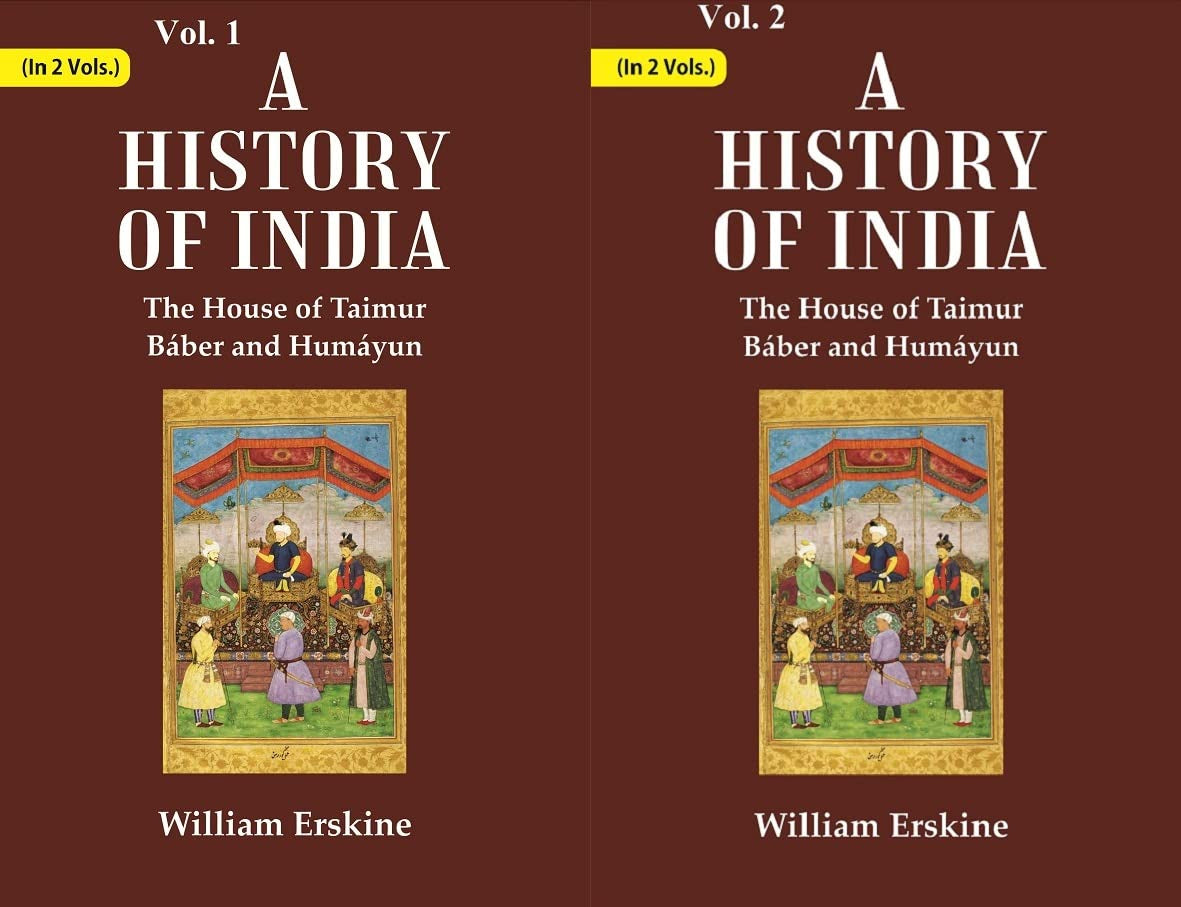A History of India : The House of Taimur Báber and Humáyun 2 VOL. SET - Hardcover
A History of India : The House of Taimur Báber and Humáyun 2 VOL. SET - Hardcover
Couldn't load pickup availability
About The Book : This two-volume work of 1854 describes the history of India under the Mughal rulers Babur and his son Humayun. This two-volume work by the Scots orientalist and historian William Erskine (1773-1852) was published posthumously by his son in 1854. It describes the history of India under the Mughal rulers Babur and his son Humayun, descendants of Taimur (Tamburlane), and is acknowledged as one of the earliest western scholarly accounts of Mughal rulers in India. Erskine had also translated the Memoirs of Emperor Babar (1826) and completed John Malcolm's biography of Lord Clive (1836). Volume 1 begins with preliminary remarks on Indian history, and a general account of the three great divisions of the Tartar tribes. The history of Babar (Babur) begins with his accession to his ancestral possessions in Central Asia in 1495, aged twelve, describes the rivalry and warfare which ended with him being expelled from his homeland, and ends with his death in 1531 as imperial ruler of Afghanistan and of most of Northern India.Volume two concludes with supplementary remarks entitled "On the State of Government and Manners in Kabul and the Surrounding Countries during the Reigns of Babur and Humayun." The topics covered in this section include government and regal etiquette, the court, the state of the provinces, the army, fortresses, inhabitants, administration of justice, men of learning and piety, literature, sciences, architecture, and several others. About The Author : William Erskine (1773-1852) was a Scottish-born scholar and administrator who held a variety of posts in India between 1804 and 1823. He mastered Persian and in 1826 published an English translation of the memoirs of Babur, the first Mughal emperor and the founder of the Mughal dynasty. In 1831 Erskine began formulating plans for a history of the first six Mughal emperors. He died before he could finish the work.
Share

